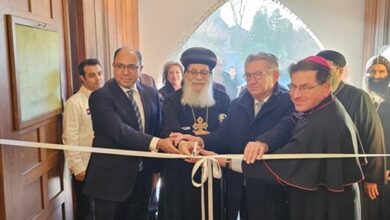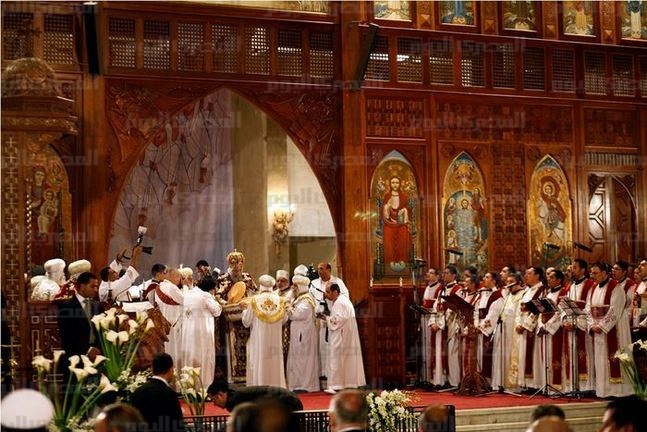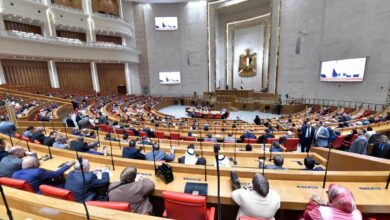Scores of Coptic lawyers of a secular orientation staged a protest on the staircase outside Justice Ministry headquarters against a personal-status draft law for non-Muslims, demanding the right of Coptic divorcees to remarry. Security services allowed the lawyers to protest for only 20 minutes.
Protesters issued a statement saying that democracy meant heeding the will of the citizens, while religion does not necessarily express the will of all people. They also said the state should not intervene in church affairs.
They went on to declare that the granting of Copts the right to a civil divorce would avoid serious social problems, but that claimants to this right should not insist that the church recognize it.
The statement, which was delivered to the minister of justice, also said that all citizens should be treated equally before the law, and that religion was a “personal matter,” in which only the individuals concerned had the right to decide if divorce was incompatible with their faith.
“Society should help Christians obtain their natural and legal right to divorce without having to change their denomination or circumvent the law and the church,” said protest coordinator Amira Gamal. “Changing denominations has become a big business. It could cost as much as US$10,000, paid to the church.”
Gamal also said that allowing divorce only in cases of adultery was unconstitutional.
Protester Bassem el-Ganoubi said there was a gap between society’s religious and civic vision. “In trying to resolve the rift between church and state, the Justice Ministry failed to address the real problem–namely, that of divorce and remarriage,” he said.
Meanwhile, Coptic Pope Shenouda III said he represented the sole spokesman on behalf of the Coptic Church. “The committee formed by the justice minister to debate the draft law did not ask for our opinion,” he said.
Asked during his weekly sermon as to why Orthodox priests could not marry, the pope said: “An Orthodox priest is the father of all people. How can he marry one of his daughters?” He went on to say that monasticism did not mean escaping from the world and its problems, but rather resisting worldly transgressions, such as illicit sex and criminal violence.
Translated from the Arabic Edition.




